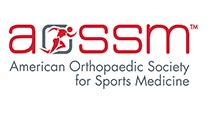Groundbreaking Five-Year Study Confirms Stability of the Novel Reverse Hip Replacement System (Reverse HRS) Design
This novel reverse total hip arthroplasty (RTHA) design has been developed with enhanced mechanical stability at extremes of motion by reversing the articulating surfaces using a femoral cup and acetabular ball. The purpose of this study was to assess the implant-bone fixation using radiostereometric analysis (RSA), assess the linear wear of the cross-linked polyethylene insert and monitor the clinical safety and efficacy of this novel design.







